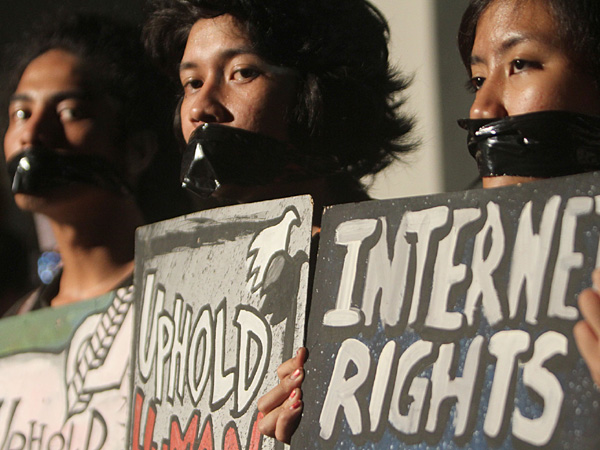Cybercrime law ruling out Tuesday
MANILA, Philippines – The Supreme Court is expected to release on Tuesday its ruling on the constitutionality of Republic Act 10175 or the Cybercrime Prevention Act.
High Court’s Information Chief Theodore Te last Feb. 11 said the decision everyone’s been waiting for will be released Tuesday.
There are 15 petitions assailing the constitutionality of the law. A restraining order was issued against its implementation in 2012.
Last week, the high court magistrates already started their deliberation and vote on the petition.
Court insiders said initial result of the deliberation and voting affirmed the legality of Section 4 (c)(4) which criminalizes Internet libel and “any other similar means which may be devised in the future” with a vote of 12-1-2.
Two provisions, Section 4 (c)(3) which provides that “transmission of commercial electronic communication with the use of computer system which seek to advertise, sell, or offer for sale products and services are prohibited” and Section 5 which punishes those who attempt, aide or abet the commission of a cyber offense with respect to child pornography, unsolicited commercial communication and internet libel have been declared unconstitutional.
Sixteen provisions have been declared constitutional including Sec. 6, which raises by one degree higher the penalties provided for by the Revised Penal Code for all crimes committed through and with the use of information and communications; Sec. 13 or the preservation of computer data and Sec. 15, authorizes law enforcement authorities to search, seize and examine computer data.
The high court will continue voting on Tuesday for Sections 7, 12 and 19.
Section 7, which provides that, apart from prosecution under the law, any person charged for the alleged offense covered will not be spared from violations of the Revised Penal Code and other special laws.
Section 12 authorizes real time collection of data; and
Section 19 authorizes the DOJ to block access to computer data when such data “is prima facie found to be in violation of the provisions of this Act.”
RELATED STORIES
87% of Filipino Internet users have been victims of cybercrimes
Poe: Child porn underscores importance of cybercrime law
